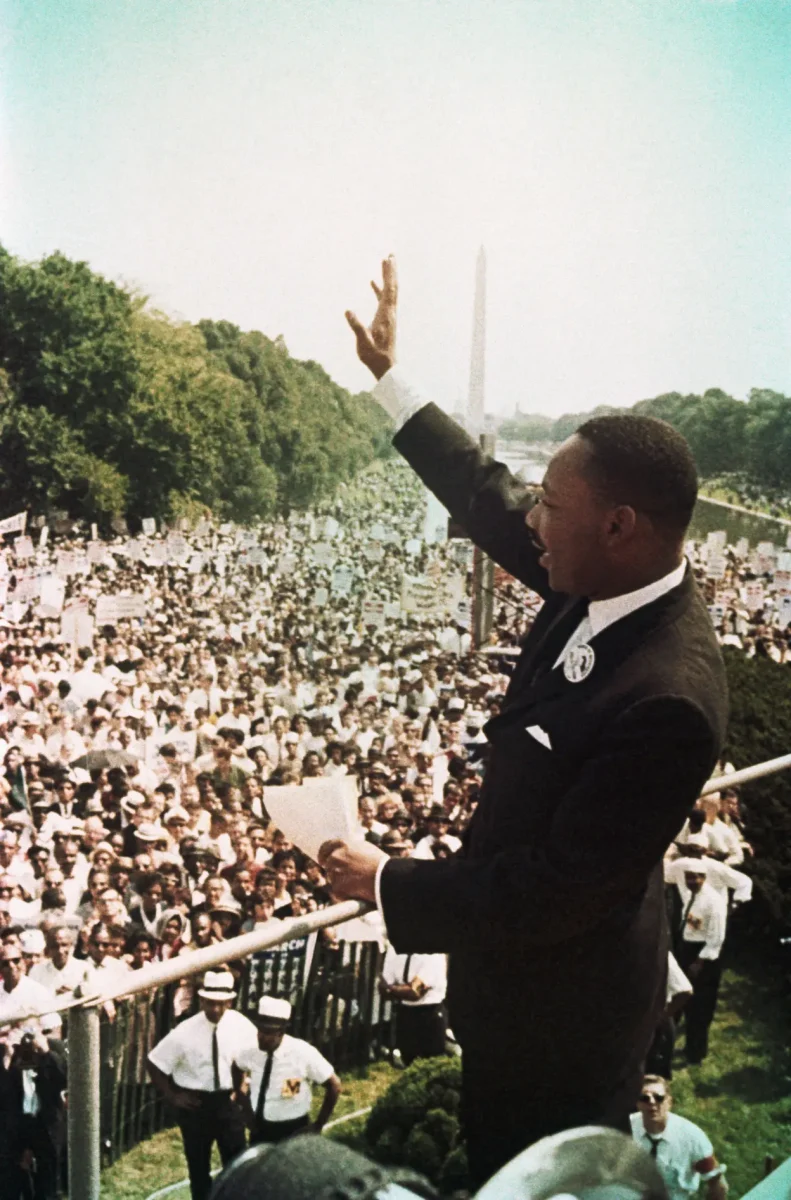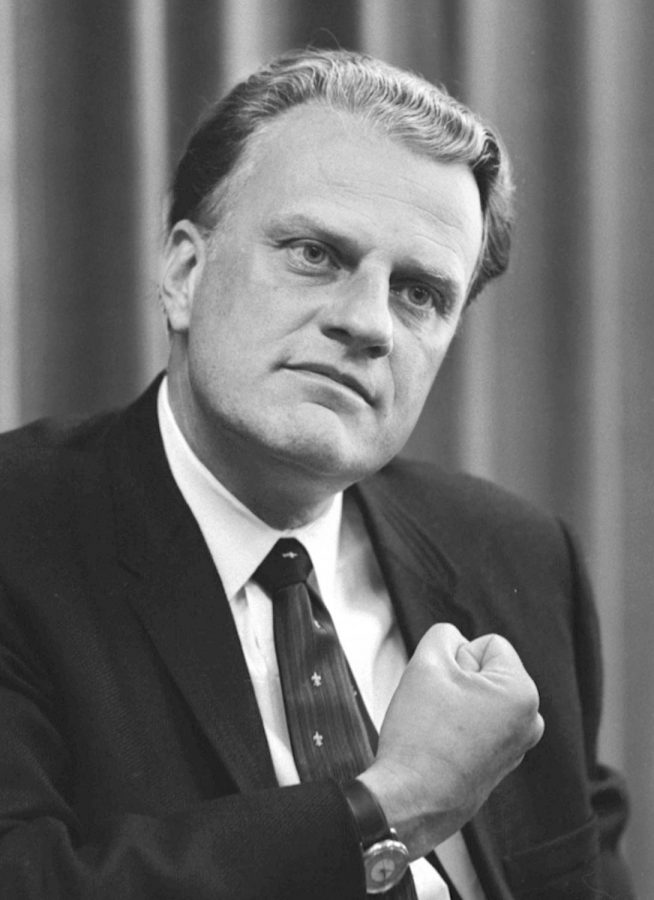The Impact Billy Graham Had
April 12, 2018
In the early morning of February 21st of 2018, an American giant died at the age of 99. He was a beacon of American ideals and a man of unwavering faith. Billy Graham was his name, and his “Crusades” touched the lives of many throughout the world. He was a preacher, a family man, and a symbol of stalwart faith amidst a society torn by conflict. Graham had faults to be sure, but his faith never faltered. Through the turmoil of the latter part of the 20th century Billy Graham’s voice penetrated the television boxes that so many people were tuned into and his message warmed the hearts of many believers. Though sometimes harshly criticized, his life left a blueprint for human morality. He was a man that made mistakes, but had the humility to learn from them and to carry out his calling with humility.
There’s a popular family legend within the younger generation of the Graham family. One time when Billy and Melvin, Billy’s brother, were out on the dairy farm they looked overhead and saw a plane spell out the letters, GP. Melvin took that as a sign to, “Go plow” while Billy took that as, “Go preach.” After that the two brothers took on their prospective occupations. Melvin was a farmer and Billy went on to become “America’s Pastor.” Billy was charismatic, young and full of intellectual wit. He spoke to the young people of the world in a unique and relatable way about morals America needed. His evangelical zeal touched hearts. His ministry stretched worldwide and reached across generations. He was influential in the home when families gathered around the little glow box. He was influential in the stadiums that were flocked with people gasping for a glimpse of this “Christ Crusader.”
Throughout his tenure as the preacher of America he was encompassed in drastic movements that divided this nation. The first major one was the Civil Rights movement. There have been criticisms of Graham’s beliefs during this time. In the 1950’s he invited Martin Luther King Jr. to speak at an event with him. But that was the extent of Graham’s part in the Civil Rights movement. Graham’s message of Christ was a religion of inclusion, but he distanced himself from the Civil Rights movement during the heat of 1960’s. Graham still hesitated about the movement that continued to grow saying that the leaders of the campaign may need to take it down a notch and let it touch hearts. This is where his critics find faulty and rightly so. However, moving into the 1970’s he engaged in the Civil Rights movement with veracity and necessity. During his Crusade in South Africa in 1973 he stated, “Christianity is not a white man’s religion.” His message seemed to now fully support the Civil Rights movement by that point in the following decade. He knew Christianity was not a White man’s religion, but earthly failures stalled his public views on the historic movement.
The second major event in America in which he was a part was Vietnam. This gives way to another major criticism on him and on his “Crusade”. His involvement and support for the Vietnam War was, in part, due to his closeness with presidents and his interest in politics. His closeness to presidents was part of his all-inclusive message. Should world leaders not have counsel? In his view it was part of his religious duty to provide counsel for world leaders that even included Queen Elizabeth II. This got him into some trouble at home when he was becoming too close to Richard Nixon. His closeness to Nixon brought about unwanted criticism on him specially after Watergate. That is where other critics stop their observations; they do not look beyond that point in time. While actually looking at the aftermath of Watergate, one could witness Graham stopping and pondering his closeness to figures of power. He never did stop his presidential counseling, but he did stop to rethink his involvement in politics. When tapes from Watergate came out in 2002 of him talking negatively of liberal Jews he was astonished. After Watergate his involvement in politics was set on a different path where he could refocus his message on God and hearing his old self before his rededication was astonishing. His response in the wake of those tapes spoke to the core of his religious movement, and that core was humility. In Christianity you have a second chance in Christ and it takes a humble man to accept that. In his humility, Billy Graham set the example of his message that people are not perfect, yet there is always a second chance for everyone including the unworthy.
Despite Graham’s criticism throughout his time on Earth and even in death, he has always kept his faith. His conduct gives a symbol for people to look to that defines the very essence of human existence. In his life, as with all, he encountered trials that everyone deals with in their own way. However, his life had always been with his purpose to preach the gospel for all to hear and to all feel that they too can have a part of Christ. He stumbled, yes, but never backed down he always reconciled with his faults; that is where most people fail. He learned as he aged. According to an interview done by CNN, a CBS reporter recalled a meeting with Graham when he was in his 90’s, “Graham said as he struggled to get out of his chair, ‘I’ve always had terms with death, but I’ve never had terms with aging’.” Graham had humility in his heart and that is where his critics fall short. Throughout his life he made mistakes, but he owned them, he reconciled with them and he learned from them. He never wavered in his faith either. Graham’s inclusion portrayed in his “Crusade” never went off course despite criticism. To brand his legacy in the bronze of exceptionalism that he embodied I give this quote, “I am not going to Heaven because I have preached to great crowds or read the Bible many times. I’m going to Heaven just like the thief on the cross that said at the last moment: ‘Lord, remember me”. Therefore, the life of Billy Graham sets an example for human dignity; that Earthly life assimilates immorality, but it requires humility to reconcile with faults and to move forward as a force inspiring generations to come of the ability to live a meaningful life.























